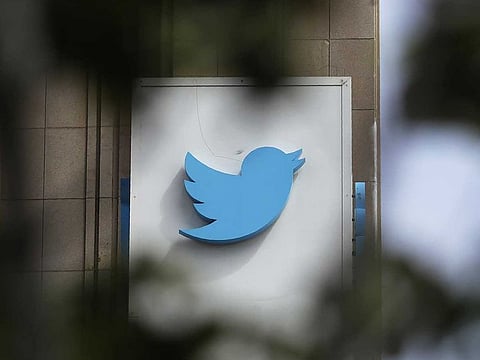India: BJP government’s face-off with Twitter threatens freedom of expression
Extraordinary step since Narendra Modi himself has been a prolific adopter of social media

Narendra Modi, the Prime Minister of India, has 68.6 million followers on Twitter. An early and brilliant adopter of social media, he effectively harnessed its potential to spread his brand.
So when the Bharatiya Janata Party (BJP) government recently sent Delhi Police on a raid to the Twitter offices in Delhi and Gurugram (the offices were empty due to lockdown), the action seemed to have come a full circle on the relationship between India’s ruling party and social media.
Is it a free-speech issue as pitched by a defiant Twitter or is it a compliance issue of Big Technology as flagged by the Government of India (GOI)? In its slugfest with Twitter, GOI shot back, saying it did not need lessons -- as the largest democracy in the world -- from a for-profit big tech firm.
As I wrote in my investigative book, “I am a troll: Inside the secret digital Army of the BJP” the party under Modi was an early adopter of social media and used it brilliantly to tell the story of prime ministerial candidate Modi and the BJP.
As I found out, the BJP had a virtual army of what they called “digital yodhas” (warriors) who spun the narrative for them and set an army of trolls against those who disagreed or who did not seem on board with the narrative. I turned to an ex-troll of the BJP, who gave me extensive documented evidence of the planned nature of the trolling.
The face-off
The big fight between big tech and the GOI started when Twitter labelled some tweets of the ruling party on a supposedly opposition (Congress) toolkit as “manipulated media”, which is Twitter speak for “fake news”. As Twitter called out BJP's propagandist tweets, the GOI issued notices.
WhatsApp, another hugely favoured BJP platform, went to court against the government’s new IT rules, calling them both unconstitutional and in violation of individual privacy.
So, what are these new rules that the social media giants are rebelling against? The new IT rules require the platforms to appoint compliance officers to oversee grievance redressal processes and remove content within 36 hours of a legal order. It also threatens prosecution against non-compliance by such intermediaries.
The government of India wants removal of encryption (in specific cases) from platforms such as WhatsApp. It also wants platforms to be legally responsible for objectionable content.
Big tech being made accountable for what it allows is actually a good step that experts in social media have been calling for years but, considering that the GOI actually took the gloves off for a bare knuckle fight — essentially to be allowed to post “manipulated media” -- against its political rivals -- flies in the face of accountability. In this particular case, the letterhead of the Congress party appeared to be forged.
When Twitter first labelled Trump’s tweets about the US election being stolen by Democrats and went on to permanently suspend him from the platform on January 6 after the insurrection on the US Capitol, even Trump did not threaten Twitter with an FBI raid. In any democracy, dissent and differing views are a norm and a right.
BJP’s overreaction
By its overreaction, the GOI made itself look bad. As the criticism of the BJP government’s handling of the catastrophic second wave of COVID-19 grew in recent weeks, authorities in India made an incredible 2,367 requests to Twitter between January and June 2020 to disclose the identity of those posting what the GOI believed were objectionable posts. This is — as Twitter says — in direct conflict with freedom of expression and democratic right to privacy.
As a believer in freedom of expression, I have always held the view that except for actionable threats of violence and clear-cut incitement which could cause wide scale public violence, such as common riots -- freedom of expression should be protected as is it in the First Amendment of the US Constitution. India offers no such protection to free speech and this government’s fight with social media makes it worse.
After eight years in power, the BJP, which never shies away from taking the moral high ground around Indira Gandhi’s Emergency (during the 70s), now seems to be channelling the same authoritarian approach of intolerance to all criticism.
Remember Modi’s Town Hall with Facebook CEO, Mark Zuckerberg, in Silicon Valley at the Facebook headquarters in September 2015 where he pitched for a digital India and said that social media would soon become a tool for governance.
Modi said “social media has brought a big change in my thought process, the power of social media today is that it can tell governments where they are going wrong....social media allows government a chance to fix their mistakes”.
Oh, the sheer irony of that statement today.
Sign up for the Daily Briefing
Get the latest news and updates straight to your inbox









